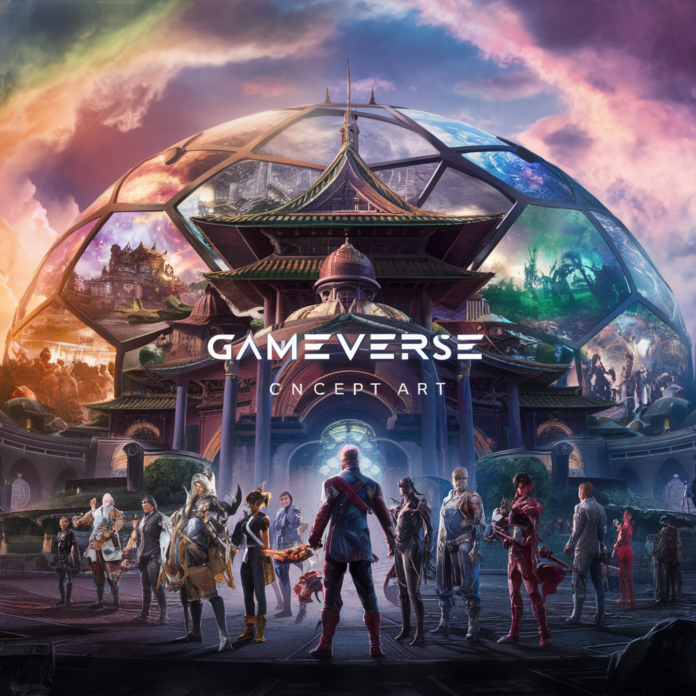Introduction
The world of video games is vast and ever-evolving, with thousands of titles spanning decades of innovation. Yet, as technology advances, many classic games fade into obscurity, lost to time due to discontinued hardware, expired licenses, or digital decay. TheGame Archives Gameverse is a dedicated initiative aimed at safeguarding gaming history by archiving rare titles, preserving developer insights, and ensuring that future generations can experience the magic of retro and modern classics alike. More than just a collection of games, Gameverse serves as a bridge between the past and present, celebrating the artistry and cultural impact of video games while advocating for their long-term preservation.
1. The Mission of TheGame Archives Gameverse
At its core, TheGame Archives Gameverse is driven by a singular goal: to protect and celebrate gaming history. Unlike commercial platforms that prioritize profit, Gameverse focuses on accessibility, ensuring that even obscure or abandoned games remain available for study and enjoyment. This involves archiving physical and digital copies, documenting development histories, and collaborating with preservationists to restore lost or damaged titles. By maintaining a comprehensive database of games—from Atari classics to forgotten indie gems—Gameverse acts as a digital museum where players, researchers, and developers can explore the medium’s evolution. The project also emphasizes legal and ethical preservation, working within copyright frameworks while pushing for reforms that benefit historical archiving.
2. How Gameverse Curates Its Collection
Building a reliable and extensive game archive requires meticulous effort. Gameverse sources its collection through multiple channels, including donations from collectors, partnerships with developers, and contributions from the gaming community. Each title is carefully verified for authenticity, with metadata such as release dates, regional variants, and developer credits meticulously recorded. In cases where original hardware is obsolete, Gameverse utilizes emulation to ensure playability, always prioritizing accuracy to preserve the intended experience. Beyond just game files, the archive also stores supplementary materials—concept art, beta builds, interviews, and even fan-made mods—that provide deeper context. This holistic approach ensures that future generations don’t just play these games but understand their significance in gaming history.
3. The Legal and Ethical Challenges of Game Preservation
One of the biggest hurdles facing projects like Gameverse is the complex legal landscape surrounding game preservation. Copyright laws often prevent the distribution of abandoned or out-of-print games, even when the original publishers no longer support them. Some companies aggressively take down fan preservation efforts, leaving titles in legal limbo. Additionally, modern gaming trends—such as live-service titles and digital-only releases—pose new risks, as games reliant on online servers may vanish forever once support ends. Gameverse navigates these challenges by advocating for fair-use exemptions for preservation, supporting initiatives like the Video Game History Foundation, and promoting legal alternatives such as official re-releases and open-source projects. The goal is not to undermine developers but to ensure that gaming’s cultural heritage isn’t erased by corporate decisions or technological obsolescence.
4. How Gamers Can Contribute to Gameverse
Preservation is a community effort, and Gameverse thrives on the support of gamers worldwide. If you own rare physical copies, consider contributing high-quality dumps (where legally permissible) to help expand the archive. Sharing developer interviews, unreleased prototypes, or behind-the-scenes materials can also enrich the database. Even simple actions—such as documenting obscure games on forums, creating YouTube retrospectives, or supporting crowdfunded preservation projects—can make a difference. Gameverse also encourages developers to consider preservation from the outset, whether by releasing DRM-free versions or open-sourcing abandoned projects. By working together, the gaming community can ensure that no game is forgotten and that future players can experience the full breadth of gaming history.
5. The Future of Gameverse and Digital Preservation
As gaming continues to evolve, so too must preservation efforts. Cloud gaming, subscription models, and ephemeral live-service titles present new challenges, as ownership becomes increasingly nebulous. However, advancements in emulation, AI-assisted restoration, and decentralized archiving (such as blockchain-based preservation) offer promising solutions. Gameverse aims to stay at the forefront of these innovations, expanding its partnerships with museums, universities, and industry stakeholders to push for stronger preservation standards. The ultimate vision is a future where every game—from AAA blockbusters to obscure fan translations—is safeguarded against time, ensuring that gaming’s rich legacy endures for generations to come.
Conclusion
TheGame Archives Gameverse is more than just a repository of old games; it’s a movement to honor and protect the artistry, innovation, and cultural significance of video games. In a rapidly changing industry where classics can disappear overnight, initiatives like Gameverse play a crucial role in keeping history alive. Whether you’re a retro enthusiast, a developer, or simply a fan of gaming, supporting preservation ensures that future players can experience the same joy and inspiration that defined past generations. Explore Gameverse today and join the mission to preserve gaming’s past, present, and future.



